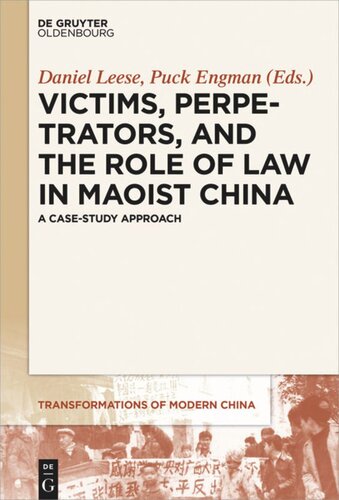

Most ebook files are in PDF format, so you can easily read them using various software such as Foxit Reader or directly on the Google Chrome browser.
Some ebook files are released by publishers in other formats such as .awz, .mobi, .epub, .fb2, etc. You may need to install specific software to read these formats on mobile/PC, such as Calibre.
Please read the tutorial at this link: https://ebookbell.com/faq
We offer FREE conversion to the popular formats you request; however, this may take some time. Therefore, right after payment, please email us, and we will try to provide the service as quickly as possible.
For some exceptional file formats or broken links (if any), please refrain from opening any disputes. Instead, email us first, and we will try to assist within a maximum of 6 hours.
EbookBell Team

0.0
0 reviewsThe relationship between politics and law in the early People’s
Republic of China was highly contentious. Periods of intentionally
excessive campaign justice intersected with attempts to carve out
professional standards of adjudication and to offer retroactive justice
for those deemed to have been unjustly persecuted. How were victims and
perpetrators defined and dealt with during different stages of the
Maoist era and beyond? How was law practiced, understood, and contested
in local contexts? This volume adopts a case study approach to shed
light on these complex questions. By way of a close reading of original
case files from the grassroots level, the contributors detail
procedures and question long-held assumptions, not least about the
Cultural Revolution as a period of “lawlessness.”